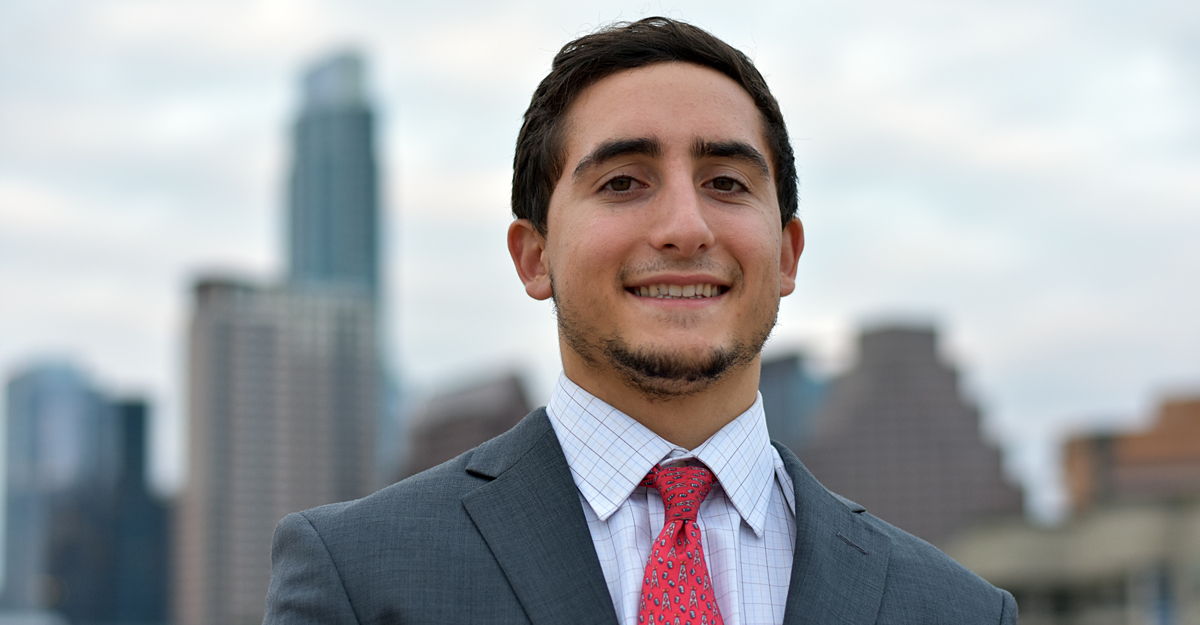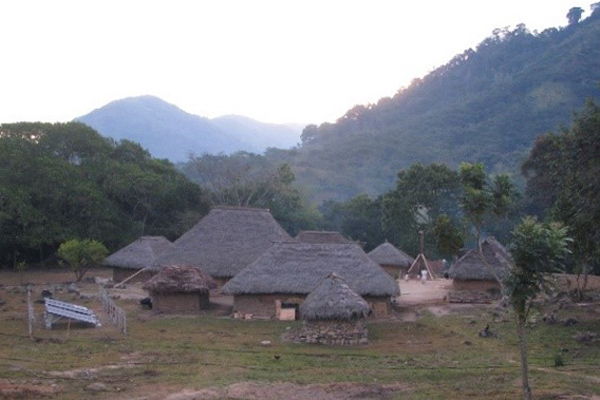Energy of the Future

Nick Staviski (University of Texas at Austin, 2018) is working to help educate the world on how energy will impact the future.
Through an internship with the Texas Alliance of Energy Producers, Staviski met Scott Tinker, founder and chairman of the board of Switch Energy Alliance (SEA). The alliance formed to inspire the public to learn about energy, engage in informed conversations and make smart decisions about our global energy future. Now an intern for SEA, Staviski helps the alliance use objective film-based materials to educate and engage students, teachers and individuals about energy. A feature-length documentary, Switch, tries to objectively explain how and why energy is made and used in the developed world. The nonpartisan film was celebrated by industry, academia and environmental groups alike.
“However, Scott and filmmaker Harry Lynch realized that Switch missed a big part of the energy story -- the three billion people in the developing world living with little or no energy, and without the benefits it provides,” said Staviski. “As they work to secure affordable and safe energy, how will it transform their lives? Their nations? What economic, environmental and political challenges will they face? And how will those affect us all? Energy poverty is a story with universal human importance.”
To tell this story and engage new viewers in the energy discussion, the SEA team is working on a second film, Switch On. Part of the broad view of energy poverty in this film will include a story about a solar installation in Gunchukwa, Colombia, to help highlight the major impact that energy has for a small community and the major challenges and expenses involved in doing so. In 2017 SEA staff toured several villages located on Arhuaco indigenous lands in northeastern Colombia, adjacent to the Venezuelan border to identify a community interested in electricity through solar panels. The village of Gunchukwa responded with a need to electrify community buildings. Roughly 700 people live nearby and come to the community area during the day. The solar panel installation took place in early February and Staviski supported the team of students and young professionals from Texas by spreading the SEA’s mission.

“The project was completed on Friday, February 16, when at 7 p.m. local time, the Arhuacan Mamo (village leader) flipped a switch, and the newly installed 3-kilowatt solar system illuminated the village. The village celebrated with a feast of barbecued lamb, traditional music and dancing until morning. The Gunchukwa project was an extraordinary success, and will be remembered by all involved for years to come,” according to the SEA trip summary.
Staviski emphasized how establishing energy to Gunchukwa demonstrates the possibility exists to bridge the developed and developing worlds. “Although it's only a start, the community will now be able to enjoy simple amenities, like light at night, a refrigerator in the general store and fans in the communal hall. Someday, the community hopes to power their health clinic. These are amenities most of us take for granted. And in return, the Arhuacan people hope to share their appreciation for the environment with the world. In this way, even the smallest voice can be heard,” Staviski said.
As a 21-year-old Staviski, has seen the contrast between people who spend their entire lives working up the corporate ladder to find happiness through possessions and those who simply appreciate what they have.
“I think my biggest realization involves my desire to help those less fortunate, which helps me understand how truly fortunate we are as middle-class Americans,” Staviski said. “My goals involve using my energy background to solve social problems and inequality. This mission trip was one piece of the puzzle, and provided me perspective. Energy usage directly correlates to higher standards of living. While energy does not necessarily end poverty, poverty cannot be overcome without access to energy. By helping to provide impoverished communities access to energy and exposing the issue of energy poverty around the world, we can begin to decrease inequality in the world and provide building blocks for peace.”
Staviski serves as Gamma Iota Chapter president and is president of The Society of Petroleum Engineers. He is pursuing a bachelor’s degree in petroleum engineering.
